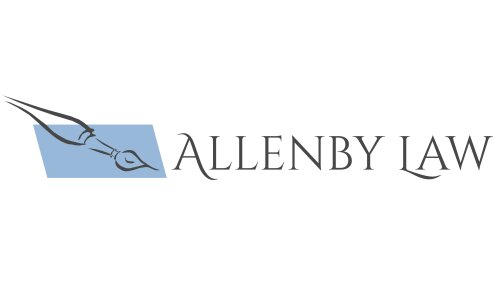Best Mining Law Lawyers in Fort McMurray
Share your needs with us, get contacted by law firms.
Free. Takes 2 min.
List of the best lawyers in Fort McMurray, Canada
About Mining Law in Fort McMurray, Canada
Mining Law in Fort McMurray, Alberta, is a specialized area of law that regulates the exploration, extraction, and management of natural resources, particularly oil sands and other minerals. Fort McMurray is known as a hub for Canada's oil sands industry, making mining law highly relevant to both individuals and corporations operating in the region. Mining law oversees how mineral rights are acquired, environmental responsibilities are met, land access is granted, and how disputes are resolved between parties involved in mining activities. The legal landscape is shaped by a combination of federal, provincial, and municipal regulations, with a particular focus on sustainable development and Indigenous consultation.
Why You May Need a Lawyer
Navigating mining law in Fort McMurray can be complex due to the multitude of overlapping statutes, regulations, and contracts. Legal assistance is often required in the following situations:
- Obtaining exploration permits or mineral leases
- Negotiating property or surface rights agreements with landowners
- Addressing environmental assessments and compliance issues
- Resolving disputes involving mineral rights, royalties, or land access
- Managing regulatory approvals, licensing, and renewals
- Understanding the implications of Indigenous rights and duty to consult
- Handling mergers, acquisitions, and joint ventures within the mining sector
- Dealing with occupational health and safety matters on mining sites
- Responding to enforcement actions or litigation from regulatory bodies
- Preventing or addressing liability for environmental damage or contamination
A qualified mining law lawyer can help interpret the law, secure necessary permissions, and protect your interests.
Local Laws Overview
Fort McMurray falls under the jurisdiction of Alberta's mining legislation, most notably the Mines and Minerals Act. This act regulates the development, production, and conservation of Alberta's minerals, including oil sands. Key points of mining law in this area include:
- Government Ownership: The Crown owns mineral rights for most land in Alberta and issues leases or licenses for exploration and production.
- Permitting System: Mining companies must obtain permits and licenses for exploration and development activities. Comprehensive environmental assessments are often required.
- Environmental Legislation: Projects are subject to the Environmental Protection and Enhancement Act, mandating reclamation plans and pollution controls.
- Surface Rights: Separate from mineral rights, land access often requires negotiation with surface rights holders, which can be private individuals, local government, or Indigenous groups.
- Indigenous Consultation: The Crown has a legal duty to consult and, if appropriate, accommodate Indigenous communities whose traditional lands might be impacted.
- Municipal Bylaws: Local government regulations regarding land use, zoning, and environmental considerations also apply to mining operations.
- Health and Safety: Occupational health and safety laws set strict standards for workplaces, including mining environments.
Understanding the interplay of these different legal levels is critical to compliance and successful mining operations in Fort McMurray.
Frequently Asked Questions
What is the process for obtaining a mineral lease in Fort McMurray?
The Government of Alberta, through Alberta Energy, issues mineral leases. Interested parties must apply for a lease, often following a public offering or tender process. The application must meet regulatory requirements and may require consultations and environmental reviews.
Do I need both mineral and surface rights to start mining?
Yes, possessing mineral rights allows extraction, but you must also secure surface rights for land access and infrastructure. Surface rights are typically negotiated with landowners or may involve the Surface Rights Board if disputes arise.
What environmental regulations affect mining in Fort McMurray?
Mining activities must comply with Alberta's Environmental Protection and Enhancement Act and federal laws like the Impact Assessment Act. Operators must conduct environmental assessments, monitor impacts, and submit reclamation and remediation plans.
How are Indigenous rights protected in mining law?
The Crown has a constitutional duty to consult Indigenous communities whenever mining projects may affect traditional lands or treaty rights. Failure to consult properly can halt or delay projects.
Who regulates mining operations in Fort McMurray?
Mining in Fort McMurray is primarily regulated by Alberta Energy and the Alberta Energy Regulator. Other agencies, such as Alberta Environment and Parks and federal bodies like Environment and Climate Change Canada, may also play a role.
Can I transfer my mining lease or permit?
Mining leases can often be transferred, but the transfer must be approved by the appropriate regulatory authority. Conditions and requirements vary, so legal advice is recommended.
What happens if I do not comply with reclamation requirements?
Non-compliance with reclamation obligations can lead to enforcement actions, including fines, suspension of operations, or court orders. Responsible parties may be financially liable for the cost of environmental remediation.
Are there specific dispute resolution mechanisms for mining disagreements?
Yes, the Surface Rights Board resolves disputes between mineral rights holders and surface owners. Other disagreements may proceed to court or arbitration, depending on the contract terms and the nature of the issue.
What should I do if a mining operation affects my property or business?
Contact a mining lawyer to assess your legal rights and remedies. You may have grounds for compensation, negotiation, or regulatory action depending on the specific circumstances.
How can I ensure my mining project is legally compliant?
Work with a mining lawyer from the outset to guide permitting, compliance with environmental standards, land and Indigenous negotiations, and ongoing regulatory requirements.
Additional Resources
Here are some helpful organizations and government bodies relevant to Mining Law in Fort McMurray:
- Alberta Energy
- Alberta Energy Regulator
- Alberta Environment and Parks
- The Surface Rights Board of Alberta
- Canadian Environmental Assessment Agency
- Fort McMurray No. 468 First Nation and other local Indigenous governance offices
- Canadian Institute of Mining, Metallurgy and Petroleum (CIM)
- Local law firms with mining law experience
Next Steps
If you need legal assistance with a mining law issue in Fort McMurray, begin by gathering all relevant documents related to your mining activities, permits, agreements, and correspondence with regulatory bodies. Consider scheduling a consultation with a local lawyer who specializes in mining law. They can help assess your situation, explain your rights, and guide you on the best course of action. Engaging a lawyer early can help ensure compliance, minimize legal risks, and support your objectives in the complex field of mining law.
Lawzana helps you find the best lawyers and law firms in Fort McMurray through a curated and pre-screened list of qualified legal professionals. Our platform offers rankings and detailed profiles of attorneys and law firms, allowing you to compare based on practice areas, including Mining Law, experience, and client feedback.
Each profile includes a description of the firm's areas of practice, client reviews, team members and partners, year of establishment, spoken languages, office locations, contact information, social media presence, and any published articles or resources. Most firms on our platform speak English and are experienced in both local and international legal matters.
Get a quote from top-rated law firms in Fort McMurray, Canada — quickly, securely, and without unnecessary hassle.
Disclaimer:
The information provided on this page is for general informational purposes only and does not constitute legal advice. While we strive to ensure the accuracy and relevance of the content, legal information may change over time, and interpretations of the law can vary. You should always consult with a qualified legal professional for advice specific to your situation.
We disclaim all liability for actions taken or not taken based on the content of this page. If you believe any information is incorrect or outdated, please contact us, and we will review and update it where appropriate.









